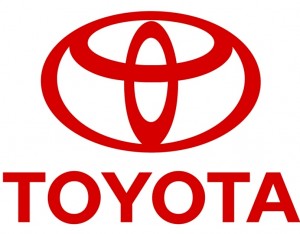
Hundreds of lawsuits stemming from Toyota's sudden acceleration problems could wind up bearing heard as one in a California courtroom.
A panel of judges has decided that all cases against Toyota Motor Company should be consolidated in a court close to Toyota’s California headquarters.
The panel selected Judge James V. Selna to preside over the litigation and coordinate pretrial discovery, where potentially damaging internal Toyota documents will be turned over to litigants.
Nearly two hundred suits have been filed concerning Toyota and its handling of unintended acceleration matters in U.S. federal and state courts. A finding by the National Highway Traffic Safety Administration that it covered up a safety related defect, and delayed needed recalls concerning defective accelerator pedals compromises Toyota’s legal position. (See Toyota Broke Law! NHTSA Seeks Maximum Fines)
Toyota’s position is further weakened by Dimitrios Biller, a former Toyota attorney who sued the company last August, claiming that Toyota deliberately withheld evidence in rollover cases. That matter is currently in mediation in what looks to be a lengthy legal path. Representative Edolphus Towns (D-NY), chairman of the House Oversight and Government Reform Committee, who has subpoenaed but not revealed (at least officially) some of Biller’s documents, alleges that they show possible violations of court discovery orders. (See Towns Claims Toyota Withheld Rollover Data )
Viewers of TheDetroitBureau.com might recall that we reported at length last year that Dimitrios Biller, the attorney involved in Toyota’s rollover litigation from 2003 to 2007 has a troubling prior history of suing employers, including the prosecutor’s office in California, where he also once worked before being dismissed. (Click here, and here.)
On March 25, 2010, in San Diego, the Judicial Panel on Multidistrict Litigation conducted a hearing and entertained arguments from some 25 different lawyers advocating 19 different potential jurisdictions to serve as the venue where the Toyota Litigation could be consolidated. The lawyers were looking for home court advantage, of course.
Toyota, which has its U.S. headquarters based in Torrance, California, asked that the cases be sent and consolidated in the Central District of California.
Judge Selna is a 1970 graduate of Stanford Law School who was appointed by President George W. Bush to the United States District Court for the Central District of California on January 29, 2003. As the litigation proceeds, Selna will make hundred what could be billion dollar decisions, including whether the cases should be certified as classes, whether there will be bellwether trials and key rulings on the admissibility of expert testimony.
Already, it appears that law firms and government regulators (who are also under attack for their lack of action regarding what are now alleged to be at least 52 deaths in Toyotas) are leaking to media outlets what they purport to be evidence of Toyota’s cover-ups, delays, and potentially criminal behavior in unintended acceleration matters. (See U.S. Toyota Officials Warned Japan Execs to “Come Clean”)
“Different judges have different approaches to managing litigation. Their judicial approaches on motions to dismiss, summary judgments, and challenges to experts, for example, all have serious impacts on the course and direction of the litigation,” according to Attorney Richard J. Arsenault, who has filed several lawsuits against Toyota in courts across the country.
Selna previously handled a contentious patent dispute between Broadcom and Qualcomm Before his appointment as a judge, Selna worked at O’Melveny & Myers, where among other high dollar cases he represented Exxon Shipping in the suits that followed the company’s 1989 oil spill in Alaska.
Given the amount of money at stake, a lot of which will be distributed to lawyers and not victims under contingency fee agreements, Toyota has little choice but to aggressively litigate unintended acceleration matters. An early victory or two for Toyota could drastically limit its financial exposure, which at this point looks to be billion of dollars. (See Toyoda Ducks Question of NHTSA Fines)
Barring unforeseen developments, the next legal development in the Toyota cases will come when Judge Selna sets a hearing date. Lawyers will then begin arguing over who should sit on the “plaintiffs’ steering committee,” which will handle the motions, discovery and other issues in the consolidated cases.
Some of the plaintiffs’ lawyers plan to have discussions about this during a “Mass Torts Made Perfect” conference at the Wynn Las Vegas hotel later this month.

Toyota’s litigation woes continue as media scrutiny continues to reveal and/or allege unethical behaviors.
Toyota is of course in litigation over the Biller matter, which contains just such troubling charges that The Associated Press has now claimed pervade its legal strategy.
Following is the latest Toyota statement, which reflects the views of the Japanese company, not ours. – KZ, editor
Toyota Responds to AP Report on Discovery Practices
A report recently published by the Associated Press regarding Toyota’s discovery and litigation practices is inaccurate and misleading, including the unfounded allegation that Toyota engages in “questionable, evasive and deceptive legal tactics.”
Toyota takes its legal obligations seriously and strives to maintain the highest professional and ethical standards in its legal practices. We are confident that we have acted appropriately with respect to product liability litigation and our discovery practices, including in the cases referenced in the AP article.
Importantly, none of the judges overseeing discovery in the specific cases cited by the AP sanctioned Toyota or otherwise found the company in violation of its discovery obligations.